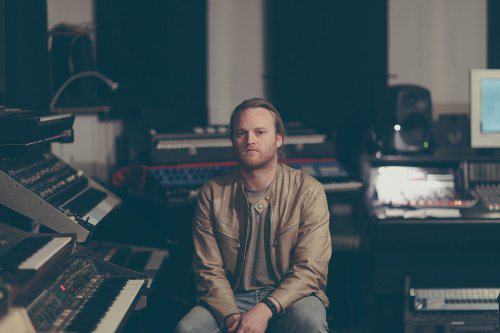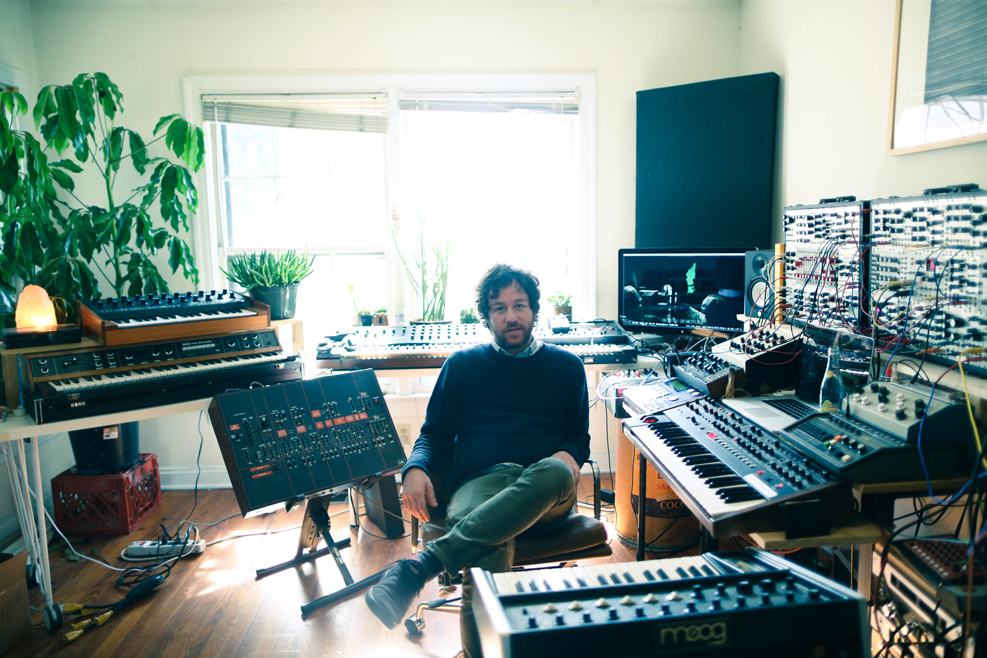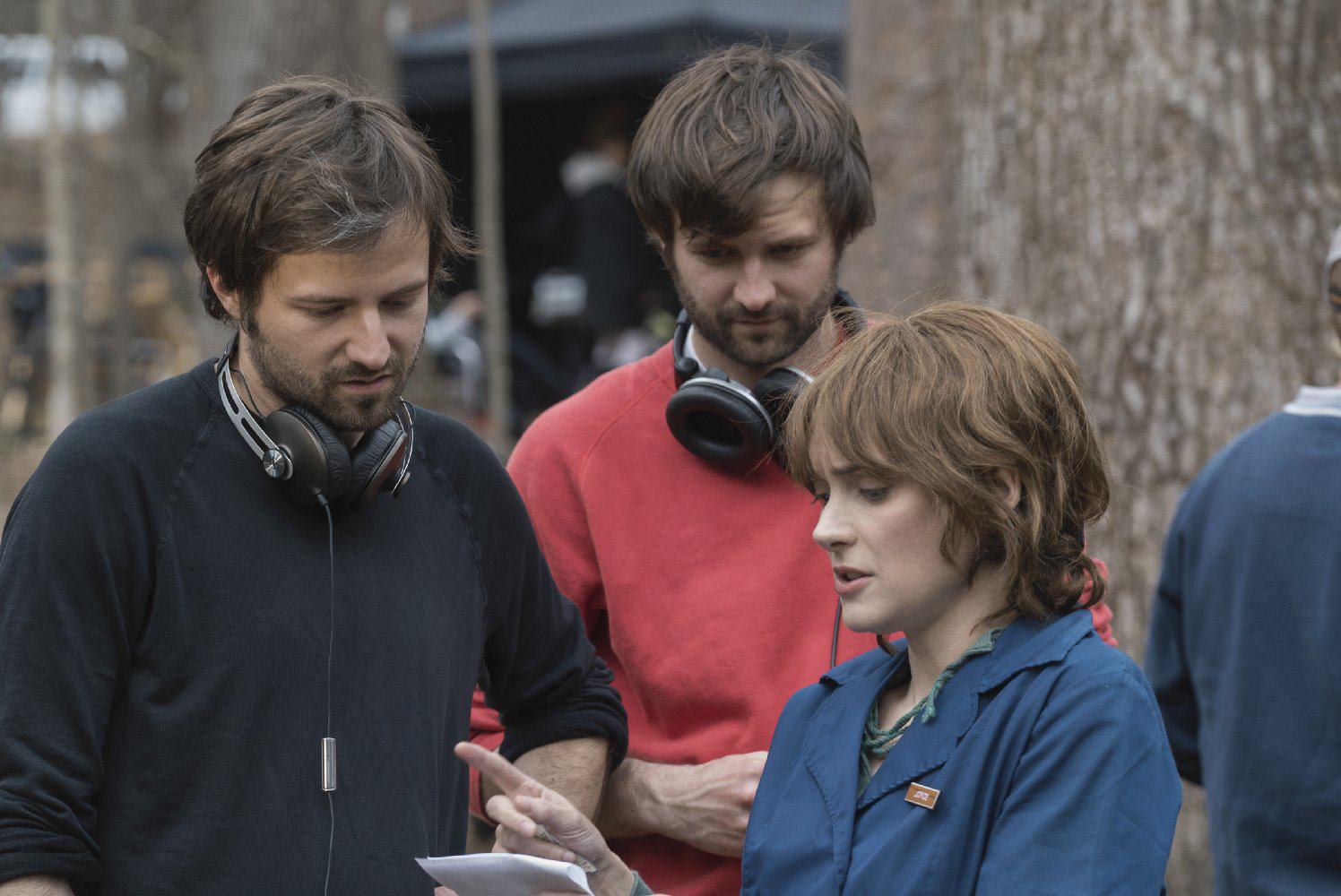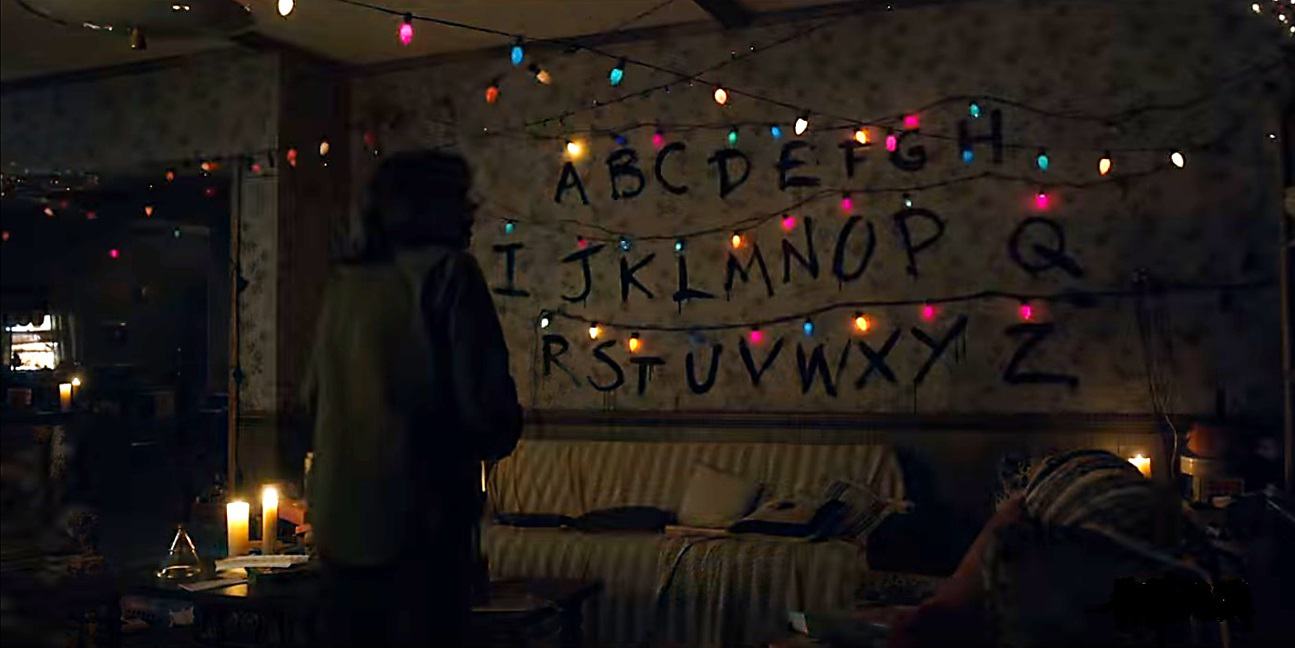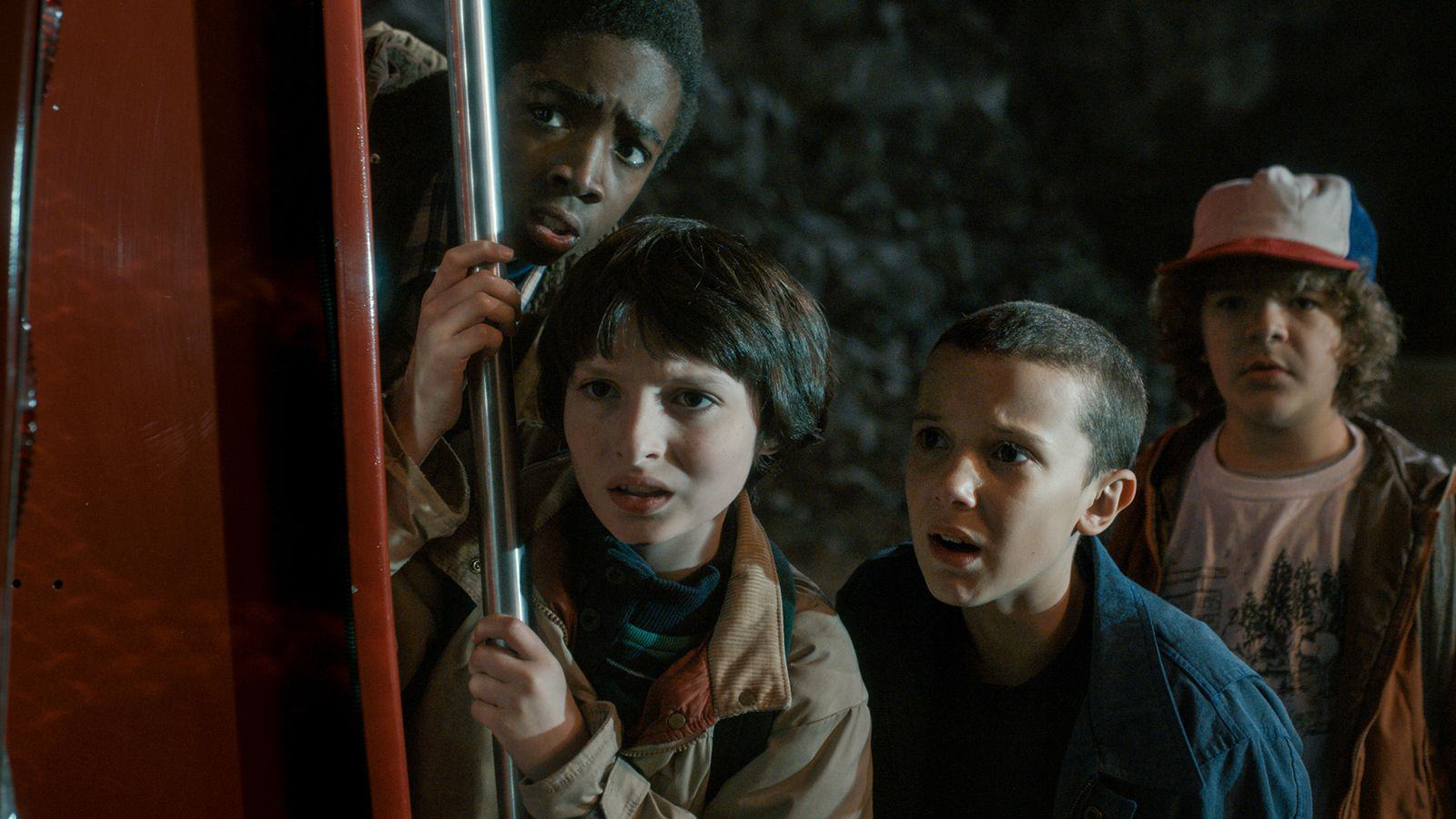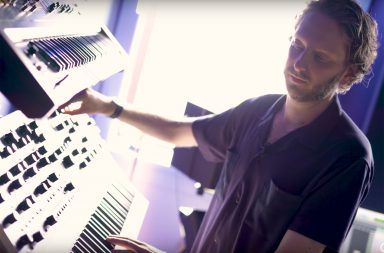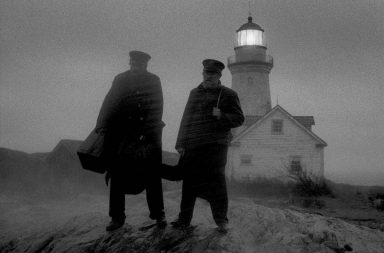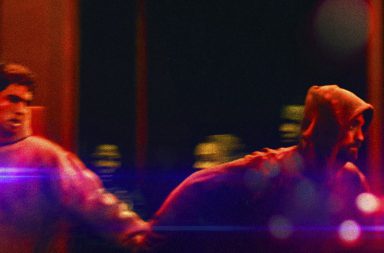I’m sure you will have at least one person in your close circle of friends who has been binge-watching Netflix’s new hit series Stranger Things and who’s been raving about it over the past few days. If you’ve been living under a rock and have somehow missed the whirlwind of Stranger Things, here’s a quick background. Set in Hawkins, Indiana, in 1983, the show tells the story of the mysterious disappearance of a boy and the ensuing frantic search by his mother, his friends and the sheriff to find him. The show created by Matt and Ross Duffer aesthetically and thematically goes full on 80s with a nice nod to The Twilight Zone’s classic Cold War science fiction. From bike rides in the dark, clueless adults and kids in charge, to walks along railway tracks and a shaved-head, kick-ass heroine, the show is utter eye candy for all the 80s kids out there who grew up with the Alien, Stand By Me, Poltergeist, ET, The Thing, The Goonies, Close Encounter of the Third Kind VHS on their shelves.
Yet we feel that the enormous success surrounding Stranger Things is aided significantly by the amazingly retro soundtrack crafted by Michael Stein and Kyle Dixon. Although very much newcomers to the world of film scoring, Michael and Kyle have been very active on Austin’s electronic music scene with their band SURVIVE for the past few years.
We caught up with them over Skype, Kyle in Portland and Michael in San Diego (at a very loud train station), to see what really went into creating the score for Stranger Things and their transition from the band to composition.
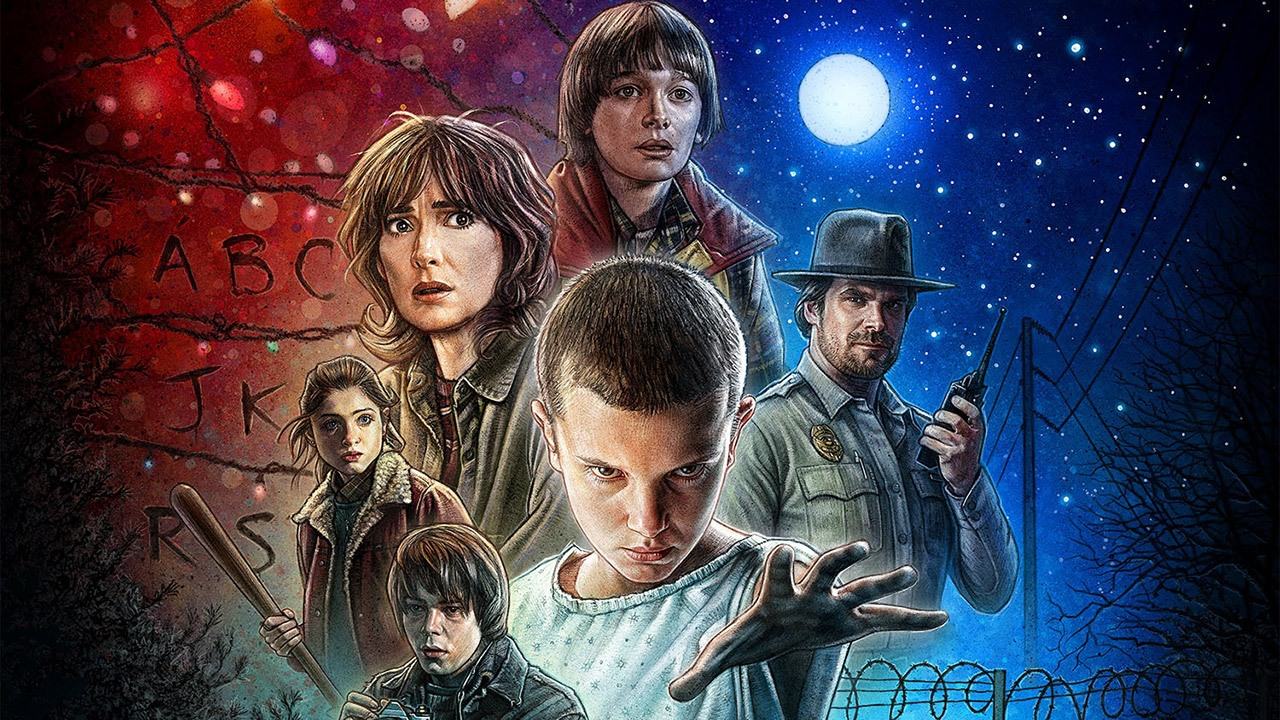 Score It: Hi Michael and Kyle, could you guys just give us a background on how you started working together and tell us more about your band SURVIVE because we have been googling you and there’s not much out there.
Score It: Hi Michael and Kyle, could you guys just give us a background on how you started working together and tell us more about your band SURVIVE because we have been googling you and there’s not much out there.
Kyle Dixon: OK, well me and Michael have known each other for… 15 years.
Michael Stein: At least.
KD: Since we were like 13.
MS: Yeah.
KD: We lost touch for a while and then we reconnected, we found out that we’d both been working on music separately and then decided that we should try to make music together, so we did. About the same time I was living with Mark and Adam, who are the other two guys in SURVIVE. Michael came down one weekend and we had a bit of gear set up in the living room and we ended up making a song that was essentially the first SURVIVE song and we ended up putting it on MySpace the same weekend. He was still living in Dallas and was travelling from Dallas to Austin and then he finally moved down to Austin and started doing it seriously.
Michael Stein (Photo credit: Alex Kacha)
So you started the band first. How did you transition into film composition?
KD: OK, so our music is instrumental so that sort of lends itself to picture a little bit just because there’s no words to get in the way. I think it kind of is cinematic in style a little bit already, people tend to say that to us. I guess it was natural to us because people wanted to use our band’s music in movies and film and then essentially the Duffers reached out to us… They asked if we were available. They had used one of our songs for a little mock trailer that they made to kind of pitch the idea to Netflix. Then they reached out and we said yes, of course. That’s the short story of how it happened.
So when you were at college, were you studying music or were you doing something else?
KD: No, Michael went to school for sound engineering, for production. I went to school for art. I did graphic design and software design as my day job before this.
Kyle Dixon (Photo credit: Alex Kacha)
Now moving on to Stranger Things. It’s fantastic, it’s blown up massively on social media.
KD: It’s fucked! I went camping on Friday, when the series came out. I didn’t have any cell service until Sunday and so I get back into town and my phone basically just melts. Just a massive list of messages from people I know, people I don’t know, insane. It just keeps happening, it won’t stop! I’m trying to do other stuff but I have to respond to messages. Cool problem!
Very cool problem, successful problems!
KD: Yeah, yeah.
How did the Duffer brothers find you?
KD: We tried to ask them and they said ‘we think from Spotify’. We don’t really know, we had a couple of songs licenced to The Guest (Adam Wingard, 2014) which came out a few years ago, it’s a smaller indie kind of film. I’m assuming that it must have come from that, they don’t really know, we don’t really know.
“Hourglass” by SURVIVE on The Guest‘s soundtrack
Well, the series pays tribute to the 1980s, the first reference that comes to mind is of course Steven Spielberg and his alien diptych ET and Close Encounters of the Third Kind. However, musically we’re quite far from John Williams’s symphonic lush and warm scores.
KD: For sure.
Stranger Things goes for the hard, cold 80s synth music and evokes Morricone’s score for Carpenter’s The Thing. Was it the production’s will to go full 80s on all levels? Did the Duffer brothers want a synth-driven score from the very beginning?
KD: Yeah, they definitely wanted that and that’s why they reached out to us but there was kind of a requirement that it wasn’t too synth-y, whatever that means. So we had to figure out what that meant.
Nice and vague.
KD: Yeah. We figured out what that meant but it’s all still synthesisers, I mean it’s synth-y as fuck. But they definitely had a vision for the music, they wanted to do a synth score for sure.
So what stage of production did you guys get called in to join the project?
KD: The very beginning. The first thing we saw was the trailer they made with our song in it before they shot anything. We saw a little look-book with inspiration, synopsis, character stuff, we saw scripts before they had even done any casting. We were doing demos for themes prior to casting. They actually used some of the demos against the auditions to help decide, I guess, both on the music and who they would get to act in it. So we were involved from the very beginning, I would say. Not the very beginning but early on. They had only written maybe two or three episodes when we came on. They definitely wanted the music to be a big part of it and that’s why they brought us in so early. So we worked on it for a fairly substantial amount of time because they wanted to make sure it was right which was good for us because we were just learning the ropes on scoring. It definitely helped us figure out what we were doing.
Also because it’s a Netflix production you didn’t have to deliver an episode weekly. Did that help you because you could see it all together before it was released?
KD: I guess so, yeah. I mean I think it probably did but I don’t know because I don’t have anything to compare it to.
So did you get a lot of input from the Duffer brothers or did they just listen to your music and say ‘go for it’?
KD: They would tell us what they wanted. They had a pretty big library to start from of just moods and stuff that we gave them. So some of that stuff just ended up being used or was put in as temp music. They would say ‘this is kind of the closest thing to what we’re thinking for this but feel free to try something else’ or ‘we have no idea, just do something to the scene’. So, it was a combination of them just using things that we’d already made that worked and then us tailoring stuff or just making something new and seeing how they’d react to it.
Winona Ryder, Matt Duffer and Ross Duffer on the Stranger Things set (Photo credit: Netflix)
Cool. So how long do you think it took you to do the music for all 8 episodes?
KD: How long? It took a long time but it’s hard to say because there’s gaps, you know? Where we would be waiting for approval so we’d have a couple of weeks off, even up to a month sometimes. But we started working on it, really, we started doing demos last 4th of July. They reached out on the 3rd and then we went through our Dropboxes and found 50 sample tracks of different moods and stuff. We sent everything to them on the 4th and they were very happy with that. They said ‘Oh it’s Christmas on the 4th of July’! They picked out the things they were liking and then asked us to write some themes to pitch to their producers. But that was prior to us being hired. That was just spec work. We got the green light to actually go ahead and start working on it in October 2015 and we started receiving picture in November. We were working from October, at least, and then just waiting for episodes to come in, or portions of them.
(Photo credit: Netflix)
Because it’s such a new take on an 80s style, did you find it a challenge to pay tribute to the 80s aesthetic while ensuring the score had its own identity?
KD: We use a lot of old equipment in our music so it kind of already sounds like the 70s or the 80s. It already sounds similar because it’s a lot of the same equipment that people would have been using back then. But we were definitely conscious not trying to make it too overtly 80s, you know, kitschy or something.
Can you tell us a bit about making the opening theme because everyone has been talking about that and about how great it is?
KD: Right. Yeah, that was an old demo that was sitting around and that Michael had on his computer. We’d sent it over with the initial library. They kind of picked that one out and said ‘this might be a good title sequence’ and we said ‘yeah, that would be a cool title sequence’. Then, once they got some credits, we got together and made a more fleshed out version, because it was pretty minimal at first. Yeah, so we basically just fleshed it out and spent, I don’t know, 20 revisions on it after they started giving us the actual sequence with the titles and everything, making everything hit on the time and chopping it up so everything happens on the right time. That one took a while, right up until the very last minute. It was done for a very long time and everybody had signed off and agreed it was going to be the title sequence but they were changing all the timing on the cards right up until day one on the stage. We spent a lot of time on that one because we knew it was going to be in every episode no matter what, so we knew it had to be good. That one got a lot of love just because it’s the main theme you know. There’s nothing worse than a good show with a terribly annoying main title.
What did you think when you got the first couple of cuts of the first few episodes?
KD: I thought it was cool.
Were you happy to be part of it? Were you excited? Did you think the music you were doing was going to fit?
KD: Yeah, it was exciting to see the picture for the first time of course. I’m trying to remember, I feel like the editors would have some temp music that they’d put in that was completely different than what the Duffers had in mind. We were kind of thrown off a bit at first by trying, not copy the temp, but you know, to inform to what we were going to do. Then, only to find out a week later that the Duffers never approved any of that stuff and said ‘no this isn’t at all what we want’. So there was some of that but it ended up working itself out. It was fun to see that stuff, and just figuring out when you need to do a lot and when you need to do just the smallest little thing. Sometimes it can just be one note and nothing needs to happen and it should evolve into this massive fucking chord structure, it can be just this weird sound that maybe changes slightly at one moment.
That must have been an interesting adjustment to go from making entire songs, to watching an episode and realising that actually if you did just a simple chord it would be more effective.
KD: Yeah, totally. It was pretty cool to figure that out. A lot of times it was a bit of a weird one; the line between the music and the sound design is blurred a lot. We would be stepping on each other’s toes at times, because a lot of the stuff we would do was pretty atonal and then the sound effects guys would also be doing stuff that was pretty atonal and we were like ‘what do we do, do we need all of this? Should we just use sound effects, should we just use our sounds? What do we do?’ Usually, I think we, in most cases, deferred to the sound effects for that kind of stuff. There’s still quite a bit of weird atonal sounds.
The soundtrack is also really great. The Clash’s “Should I Stay or Should I Go” plays an important part in the narrative, did you guys play any role in picking those songs?
KD: We didn’t really have much say in that.
MS: We were asked to contribute a couple of times but there really wasn’t that much free time.
KD: Luckily most of the songs they chose was totally cool with us: ‘oh cool let’s use Joy Division, fine. Cool. Sold’. Luckily the music supervisors were pretty good about that. They asked us if we had any suggestions but I don’t think any of our suggestions ended up making it.
Did you listen to anything for inspiration, neo-retro things like the scores Cliff Martinez does for Nicolas Winding Refn?
KD: I found out about Cliff Martinez because a friend of mine said ‘hey, have you seen this show called The Knick (Cinemax, 2015—), it sounds like your band’ and I said ‘Oh cool’ and that’s how I found out about Cliff Martinez.
MS: They mentioned Cliff Martinez.
KD: I don’t want anyone to think we’re copying Cliff Martinez because we were definitely doing this kind of music before. I want to make it clear that this was not ‘oh let’s make a new Drive soundtrack’. We were doing this before that was a thing, to be clear. But that stuff is all similar enough that you would listen to it and go, ‘oh this is cool’. We actually had been in contact with College, who have a fairly recognizable song on the Drive soundtrack, way back in the MySpace days.
So you were just sticking to your own thing?
KD: I’m not sure if we took too much inspiration from other people but we definitely started paying more attention to scores and how people would handle certain situations, how you can score a certain type of scene. We weren’t trying to emulate styles, more so researching techniques that could be used to convey a certain type of action, suspense, whatever. Not necessarily referencing a musical style since we already have a pretty solid understanding of our own approach.
Was Stranger Things the first TV (film maybe as well) project that you worked on?
KD: Yeah the first.
There must have been such a steep learning curve from going from just making your own music to working with it for TV.
KD: It’s pretty easy actually. It’s actually easier when you have picture because you know what to do. There’s a theme and you know what’s happening, you’re going to play that up and there’s probably one of three ways you can make the point so you pick one and see if it works. It’s a lot easier than sitting down with a drum machine and saying ‘OK I’m going to make a song today’. You at least have some direction to go in, or you know that a certain part mustn’t be too sad or too happy or it needs to be really fucking dark or whatever. You have some idea of what you need to make before you get started.
Is there a release date for an LP?
KD: No, there’s nothing set up yet. There’s definitely a lot of messages about it and a lot of labels that want to do it but nothing is official yet. I’m optimistic that it’ll come out because people want it, but nothing has been set up yet.
(EDIT: The soundtrack will be released, it’s been confirmed on the series’s Facebook page)
So do you guys think you’re going to keep working on film and TV or are you just going to keep doing your music and see what comes your way?
KD: I mean we better do more.
MS: Yes.
Was it fun, enjoyable?
KD: Yeah, it’s all I want to do. I sure hope we get to do more.
When you guys were working as just the band did you ever consider you would end up doing this kind of thing?
KD: Yeah, we always wanted to do music for film. We kind of talk about our music in visual terms anyway, something will sound like the scene from a movie or a made-up movie and we will kind of refer to it that way and let that help us inform the decisions that we make: how to finish it, what aspect is missing or whatever. So we definitely always wanted to do it and just hoped that we would be able to. We’d go to movies and hear stuff there and wonder why it wasn’t us doing it… And finally somebody else realised that too, so that’s good. Thanks Duffers!
(Photo credit: Netflix)
Because you’ve been working together for a while, do you have a particular routine? Do you just sit down and go for it?
KD: I mean, we’ve been recording music for years now. Michael has his studio at his place and I have my studio at my place so we’ll record separately and then send ideas over to each other or we’ll get together and work on music together but we’re pretty much always recording something, whether or not it’s similar to the score of Stranger Things or similar to the music that SURVIVE releases, we’re recording something pretty much all the time I would say.
We have to ask you what is your favourite 80s film and score.
KD: Shit, I don’t know. I don’t know if it’s my favourite film but The Keep by Michael Mann has a great score, a Tangerine Dreams score. That’s a really good score and the movie is cool too. Sorcerer, another Tangerine Dreams score that’s really good, not very similar to Stranger Things necessarily. Those two are Tangerine Dreams, I don’t want everything to be Tangerine Dreams. Shit, I don’t know. So many good scores. Stalker is one of my favourites, and also has a wonderful score by Edward Artemyev.
MS: I watch way too many movies. It’s very difficult.
KD: Yeah, especially when you say 80s…
Do you have any film/TV projects lined up?
KD: Not yet, nothing yet. Hopefully soon.
We know you guys have just started out doing this whole thing, but do you have any tips for aspiring composers who are trying to work their way in?
KD: Just keep making music and put it out there so people can hear. People need to know what you’re doing, else they’re not going to hire you.
MS: If you like your music other people probably will too.
KD: Yeah for sure.
MS: So put it out and let people hear it.
KD: Yeah, don’t let it sit there in your closet because you don’t think it’s finished or whatever. I listen to so much music and I listen to it all the time but if I made that song myself I’d think it wasn’t good enough to come out, I just shouldn’t release this. I’ve become conscious of that ‘I’m still listening to this and I’m still critical of myself’ so yeah put your stuff out there. Just put it out there and somebody will like it. I feel like it’s impossible to put out a piece of music that no one likes.
MS: Pay someone to make it sound good if you can’t.
KD: That’s a good one.
***
A massive thank you to Kyle and Michael for their time and to Denise Godoy at Netflix for helping us arrange the interview!
Interview prepared, conducted, transcribed and edited by Marine Wong Kwok Chuen and Genevieve Stow.

